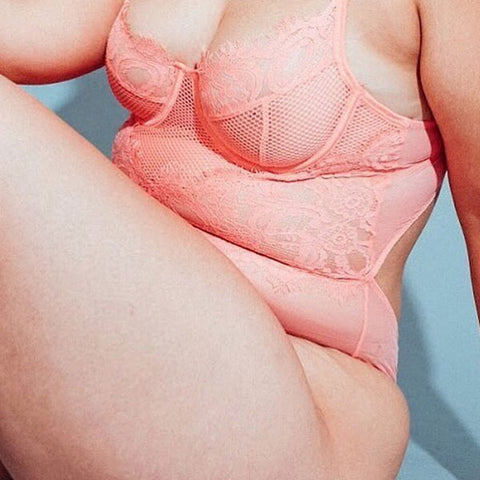Sexual Shame
“If you sleep with him on the first date, you’ll never see him again”, “But how can you still be a virgin at your age?”, “Being bisexual is just an excuse to be promiscuous”, “A man who turns down sex is a loser/gay”.

Sexual shame, also known as sexual guilt, is an emotion that comes up when one doesn’t seem to fit in with, or conform to, certain standards in the intimate and sexual spheres. This feeling builds up over time, and can be influenced by several factors, starting from childhood - with messages and behaviours about the body and sexuality, which we’ve learned from and picked up on ever so slightly.
Where does it come from?
Things like gender roles, those social conventions that establish what is “female” and what is “male”, and the relative expectations that come along with these ideas, have a strong impact on how we perceive ourselves. Often, this can be limiting, since it doesn’t consider nor account for every possibility or nuance.
“Good girls don’t masturbate”, “A real man never has to ask for it”, “A woman never makes the first move”, “The man must always want it”. As soon as we don’t play along with the vision that we’ve thought up for ourselves, we easily become victims of sexual shame by others, or by ourselves.
Experiencing these feelings is like doubting your worth, which is why it is very common to experience anxiety, anger, or disappointment that can undermine your self-esteem - one of the main instigators of pleasure.

All of these “internal constraints”, hang-ups, and feelings of guilt not only prohibit us from enjoying and expressing ourselves freely, but they can also be connected to actual sexual disorders, ranging from lack of libido to problems surrounding orgasms, or anxiety.
How often have we wanted to do something, or say something, but a little voice inside our head has stopped us? It’s common to hear about how “virginity” is a value worth preserving. Consequently, a woman understands her worth based on how many times she has “handed over” or “given up” her body: if she does it often, she’s immoral, but if she never does it, she’s “crazy and uptight”.
The degree of discomfort that follows sexual shame greatly influences both the moment in which it occurs, as well as our future reactions to similar situations. This also affects our well-being in various ways.
How can we break the chain of sexual shame?
1 - Find the root of the problem.
When you feel some sort of remorse towards your body, or your sexuality in general, stop and identify what, exactly, caused the feeling. Maybe they were messages or gestures that you picked up on subconsciously from friends, partners, teachers, the media, or even from a traditionally religious culture, full of taboos and prejudices. They can even come from a particularly closed and judgmental family environment. These thoughts have the ability to sneak up on us, enter our minds, and make us unknowing accomplices of a negative and judgmental culture. It’s highly probable that we’ve even said something to perpetrate these ideas without even realising it.

2 - Deactivate the trigger
Whatever these triggers may be, it’s not our fault that we have them. However, it is our responsibility to do something in order to deconstruct them and live out a positive sexual experience. Be aware that having sexual desires is as natural as being hungry or thirsty. Each and every body is valid, and only you can have control over yours. There aren’t any characteristics or behaviours that truly define a “real woman” or a “real man”. There aren’t any standards that need to be approved. There aren’t any mandatory sexual techniques, just like there is no need to follow a special set of rules on how to manage your body and your pleasure. Only you can choose for yourself!
3 - Do not repress your desires, your identity, or your body
Not having any self-esteem can make intimate situations a living hell. Getting rid of these constraints takes a lot more than one day; it’s a long journey that must be carried out with love and dedication, and starts with a commitment not to judge ourselves based on what others might think. Instead, we need to prioritise how we want to express our own essence.
Take these negative thoughts and reflect on them: do they come from a source you really want to give authority to when it comes to your body and pleasure? Could what you want to do really make you a “worse” person? If your desire does not hurt anyone, nor limit the freedom of others, you have every right to take it into consideration. Whatever your sexual identity may be, it’s yours! And there is no right or wrong way to express it. Not having any self-esteem can make intimate situations a living hell. Getting rid of these constraints takes a lot more than one day; it’s a long journey that must be carried out with love and dedication, and starts with a commitment not to judge ourselves based on what others might think. Instead, we need to prioritise how we want to express our own essence.
________________________________________________________________
You may also like: Sexism Squared
________________________________________________________________
4 - Help create a positive environment
It’s clear that the environment and the people around us play a fundamental role when it comes to our sexual well-being: are we accepted and do we accept each other? Do we respect ourselves, and are we respected? In a positive situation, there isn’t that much space for insecurities. Therefore, it’s important to surround yourself with people who give off positivity, constructive dialogue, and accept us for who we are. We have to reflect and work on our own toxic behaviours (whether voluntary or not), because each of us can contribute to a more positive, liberated, and shame-free culture.
By: Virgin&Martyr
Credits: Pic1: Albayruela - Pic2: Bethanmooney - Pic3: Thebtwn

